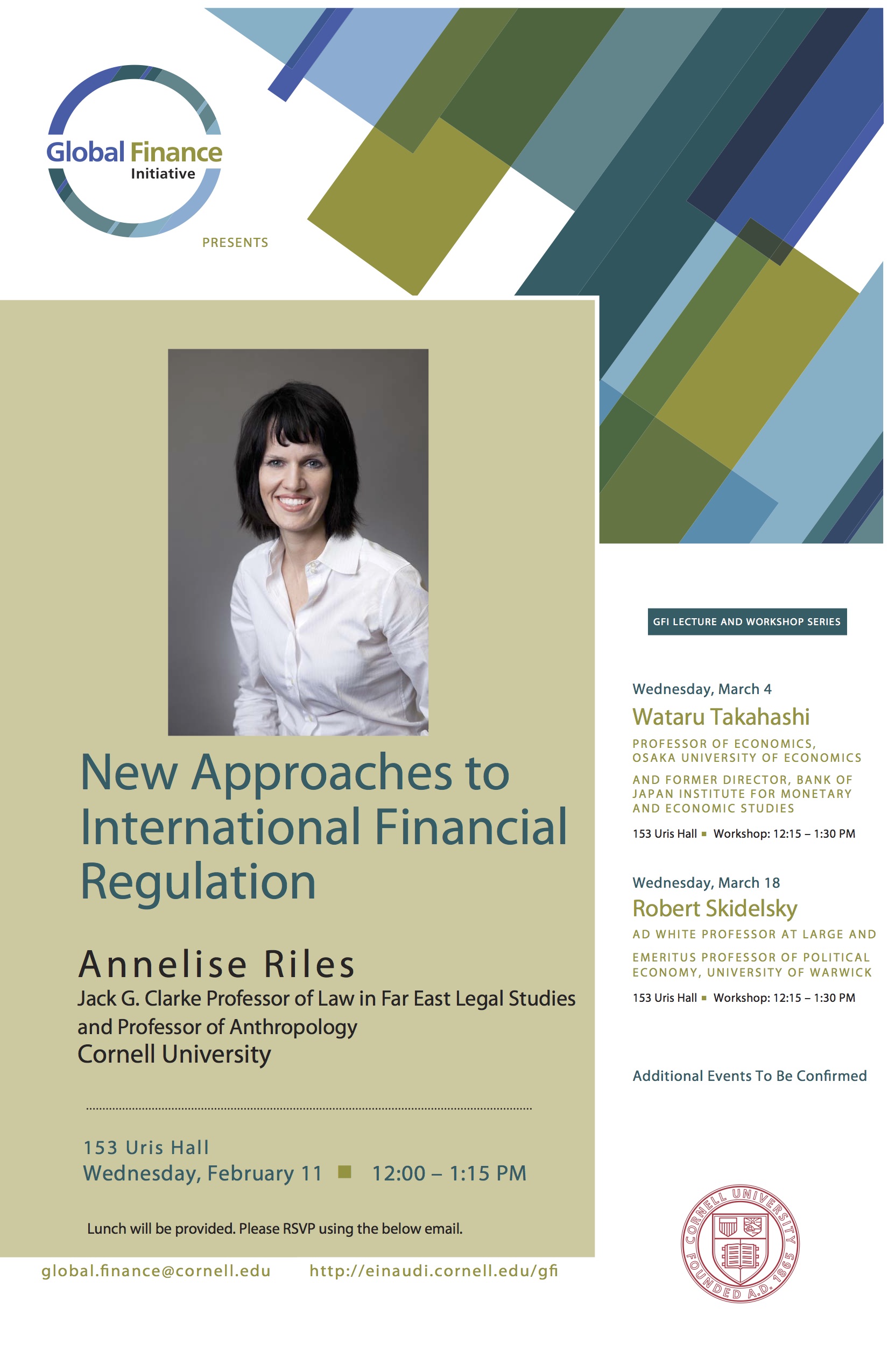April 3, 2014
by ar254@cornell.edu
1 Comment
Last week I participated in a workshop in New York City sponsored by the Aspen Institute and organized by my wonderful law school colleague Lynn Stout on new approaches to corporate governance. Lynn experimented with a totally different conference format–no podiums, no panels, no long speeches followed by polite questions from the audience.
Instead, we sat around breakfast tables and started the day by introducing ourselves and telling the group what we were reading at the moment. Then we split into small groups of five to discuss what was the most exciting idea we had encountered in the field (other than our own!). Throughout the day we moved through a series of exercises, from writing on flipboards to “tweeting” on notecards, to imagining the world in ten years’ time and how we got there, to sharing one or two of the things we were most proud of or wish we could do differently in our careers to date.
Academics are creatures of habit and some people seemed to have trouble adapting to this new format. Some even flunked the introductions and couldn’t help launching into a speech about their own work. Others just couldn’t put aside the impulse to promote their own ideas long enough to engage in the collaborative exercise. But I thought it was really fun. For one thing, people were not constantly checking their email while sitting through long presentations that had long ago ossified into positions the authors were only willing to defend, but not revisit.
I suppose the downside of such an approach is that it tends to produce back-of-the-envelope type thinking rather than sustained, researched, and nuanced ideas. But it depends what your goal is. Lynn’s goal was to foster an environment that encouraged junior scholars and created networks among junior scholars and senior scholars. For that purpose it worked beautifully because junior people could speak on an equal footing with senior people.
What experiences have you had with alternative formats for scholarly engagement? What has worked and not worked in your experience? What ideas for possible formats would you be interested in trying? I think this is something we need to think about more.


